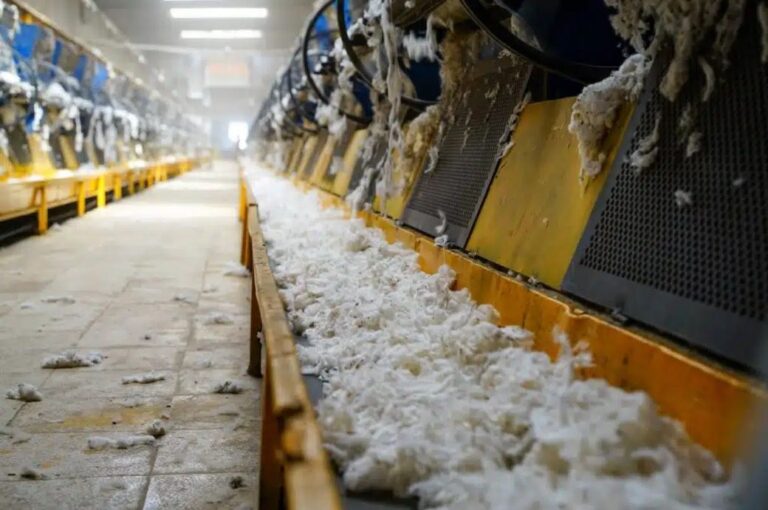
[ad_1]
The non-profit organisation has used data insights, stakeholder interviews, and the experiences of local supply chain actors to shed light on how things work in different countries and regions and identify the key challenges to traceability.
Better Cotton is developing its own traceability capability to enable the physical tracing of cotton through the existing Better Cotton Platform, set to launch in late-2023. To support this, it has created a series of supply chain maps using data insights and stakeholder interviews to better understand the realities of cotton trading countries.
“Central to the programme will be our evolving Chain of Custody Standard. This will prompt operational changes for manufacturers and traders alike. It’s vital the Standard acknowledges regional variation and is achievable for suppliers in the Better Cotton network. We’ll keep applying the knowledge and lessons we’re learning to ensure any changes meet the wants and needs of Better Cotton stakeholders,” Nick Gordon, traceability programme officer at Better Cotton wrote in an article on the organisation’s website.
Sharing his learnings so far, Gordon said informal economies play an important role in Better Cotton producing countries; it is important to create the right digital solutions; and economic challenges are changing behaviours in the marketplace.
Talking about the role of informal economies, Gordons said enabling traceability is more straightforward in larger, vertically integrated supply networks. The fewer times material changes hands, the shorter the paper trail, and the greater likelihood of being able to trace cotton back to its source. However, not all transactions are equally documentable, and the reality is that informal work acts as a crucial support mechanism for many smaller actors, connecting them with resources and markets.
It is important to create the right digital solutions. New innovative technology solutions are available for use in the cotton supply chain—everything from smart devices and GPS technology on farms to state-of-the-art integrated computer systems on the factory floor. However, not all actors in the sector—many of whom are smallholder farmers or small to medium-sized businesses—have embraced technology to the same extent.
“When introducing a digital traceability system, we need to consider varying levels of digital literacy, and make sure any system we introduce is readily understandable and easy to use, while also fitting the needs of users. In particular, we are conscious that the gaps are greatest at the early stages of the supply chain, among cotton farms and ginners, for example. Yet it is precisely at these stages that we need the most accurate data – this is essential to ensuring physical traceability,” Gordon added.
The impact of the pandemic, coupled with challenging economic conditions, are changing behaviours in cotton supply chains. For example, considering fluctuating cotton prices, yarn producers in certain countries are replenishing stocks at a more cautious pace than others. Some suppliers are concentrating on long-term supplier relationships or searching for new supply networks. Predicting how much customers might order is becoming less easy, and for many, margins remain low.
Amid this uncertainty, the opportunity to sell physically traceable cotton could offer a market advantage. So, in the same way that cultivating Better Cotton helps farmers to achieve better prices for their cotton—13 per cent more for their cotton than conventional cotton farmers in Nagpur, according to a Wageningen University study—traceability also presents a real opportunity to create further value for Better Cotton Farmers. For example, carbon insetting frameworks, underpinned by a traceability solution, could reward farmers for implementing sustainable practices.
Better Cotton will be testing two new traceability platforms in an India pilot this year.
Fibre2Fashion News Desk (KD)
[ad_2]
Source link